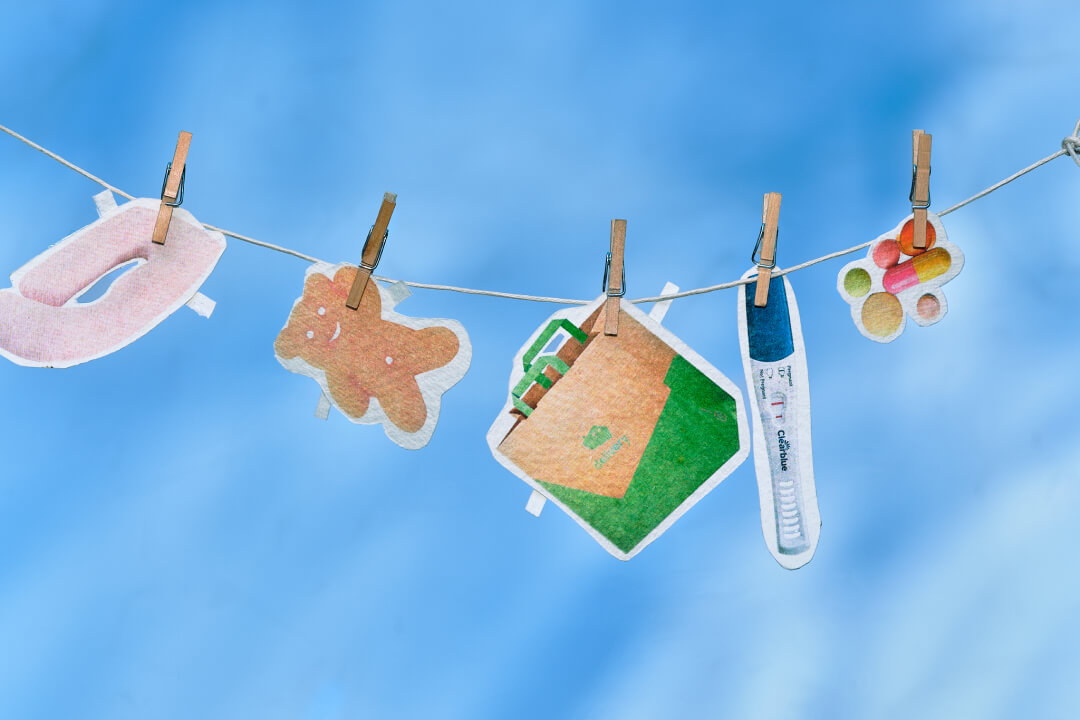
Family
What do parents buy to fill their empty nest?
By Charlotte Lorimer

It’s a big subject: pocket money and paying for chores. After all, the last thing anyone needs to learn is that helping out comes at a price. But an at-home allowance can be a fun and easy way to learn about spending, saving, and how to ask for a couple of extra pounds to vacuum the stairs.
Thankfully, with the help of some Starling parents and their suggestions, the big questions come a little closer to being answered. But please note: everyone involved stayed out of the debate on how much to charge for vacuuming. Here are a few good starting steps.
Money’s no secret, so get to the point with a chat that includes everyone. Name jobs expected to be done every week, tasks that will earn extra cash, and - gasp! - how to get a raise.
“(My) kids are encouraged to do chores because they’re part of the household and cleaning up the common area benefits all,” says one parent of a seven and eleven-year-old. “They get a base monthly allowance and then can gain additional money if they pick up extra jobs.”
So grab a notebook and start jotting down what makes sense. By agreeing on what’s fair and drawing up an official contract (with room for negotiation, obviously), chaos will be avoided because everybody gets a voice.
“(Paying for chores) teaches them good habits from an early age,” a parent of two boys, aged seven and nine, says. “Money doesn’t just appear without having to earn it.” By giving your children pocket money for chores, this can help them to learn the value of money.
Preach! But household chores also don’t need to be boring or tedious. Believe it or not, they can be fun.
“My kids are very outdoorsy so they do outdoor chores - gardening, car washing, etc.” that same parent says. “We also take them grocery shopping so they learn about how much things cost and how to budget.”
Newsflash: it can be exciting to earn and learn about money in such a hands-on way. Especially when work and joy go hand in hand, and grocery store treats are picked out - and paid for - with the sum of that good time.
Of course, contracts and conversations are all well and good at the start, but with great power comes great responsibility. (And other lessons taught by Spider-Man). Enter: the job board, where tasks are front and centre, and all family members know who’s doing what and for how much. Plus extras!
A parent of two girls, aged seven and 15, posts a list of chores plus additional payments per task, while a parent of a seven and 11-year-old sets a weekly rate for an agreed number of jobs and then pays more for additional chores done.
“We pay for extra tasks not linked to their personal responsibility,” they say. “The kids would probably weed or clean the car for free but we pay them because we believe in fairness, and they should know their own worth.”
This is the perfect chance to grab some cardstock and make it gorgeous. Cover the job board with stickers, go bananas with markers. List the tasks that are included in a weekly payout, and then make the bonus section shine. Work out a schedule and a way of keeping on top of it, and bask in the glory of crafting meets responsibility. Great snacks must accompany.
Don’t trust a soul who hasn’t messed up. And that includes anyone who’s spent too much, let their budget run away from them, or didn’t show up to work on time (or at all).
This is what two parents of seven and ten-year-olds agree on, too. And this is why they pay their kids while reminding them that “there is a relationship between effort and money received” and “you must work for things”.
And thinking like this is super useful if there’s been a money mishap. Did somebody do a bad job with housework and will face a cut in pay? Did another person spend too much and want to borrow from their parents? What are the consequences - if any - for a drained savings account? It’s okay to make mistakes and they’re a perfect opportunity to learn. Especially since nobody ever stops making them.
Even from an early age, it’s good to get a say in where their money goes, and that includes which bank accounts. So think about bigger goals: after a weekly allowance, is it time to open a savings account for the future? Is a savings account a safe way to set money aside for the next great gaming system? Is it rewarding just to watch a number climb? (A rare treat!).
Talk as a family and ask those questions. Even a few pounds a week deserves a great conversation.
The article above includes general information and should not be taken as financial advice. If you have questions about your specific circumstances, please speak to an independent financial advisor.

Family
By Charlotte Lorimer

How Much Does It Cost?
By Anonymous contributor

For What It’s Worth
By Anonymous contributor

For What It’s Worth
By Anonymous contributor